First Departmental Self-Evaluations
Before Priority I construction was even underway, the Committee had a non-construction related task to oversee—a federally mandated self-evaluation by different departments to act as a self-reflection on accessibility. On June 1, 1978, the Committee published an internal report of all of the self-evaluations they had received from the Subcommittee on Non-Academic Program Accessibility, in which all parties indicated a willingness to accommodate all students of different abilities. Certain departments deserve recognition for their existing support of accessibility, including the Dartmouth Dining Association, the Office of Personnel Administration, and Dartmouth Broadcasting.
A little over a month later, Subcommittee for Academic Program Accessibility published a report of their own. The Academic Departments’ self-evaluations had overtones of frustration at the College’s lack of accessibility and showed a willingness of department leaders and professors to accommodate disabilities. Most interestingly, there was a sharp difference in the responses from STEM departments and Humanities and Social Sciences departments. Humanities departments tended to focus on the lack of real accessible places in which to hold classes. The Department Chair for the Department of Romance Languages and Literatures, remarks in his official self-evaluation that he is disappointed in the College’s lack of plans to invest in buildings used by the humanities departments:
I am curious to know, however, why, with the exception of the Hopkins Center, none of the buildings housing Humanities programs have been included in the plan for program accessibility, at any level of priority. Does that mean that access to these programs is considered to be less urgent?
David Sices, Department Chair of Romance Languages and Literatures
STEM department self-evaluations told a different story of the College’s ability and history of accommodation. The majority of STEM departments cited individual cases where department leaders and their professors went above and beyond to accommodate students and laud disabled students’ talents. These evaluations present, perhaps, the richest and most detailed look at Dartmouth’s educational institutions during this point in time. While the College did eventually create a department to centralize and entrench student accessibility into the College, the evaluations represent diversity and disagreements in approach throughout departments and reflect a generalized desire to accommodate before the establishment of accessibility-centered offices.
From the Archives
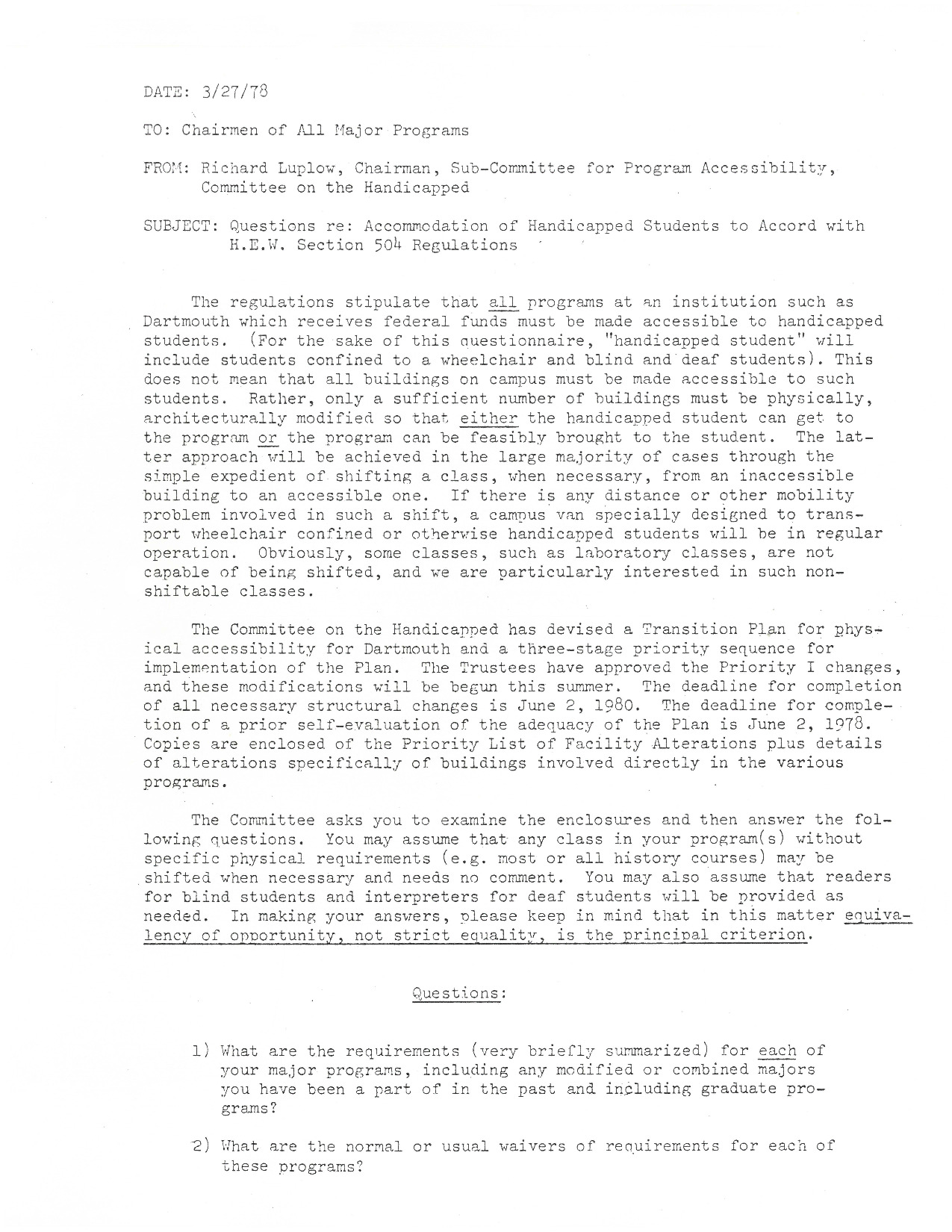
List of questions sent to Dartmouth academic and non-academic departments that informed their departmental self-evaluations for the Committee on the Handicapped. These self-evaluations were required to assure compliance with Section 504 of the Rehabilitation Act of 1973.
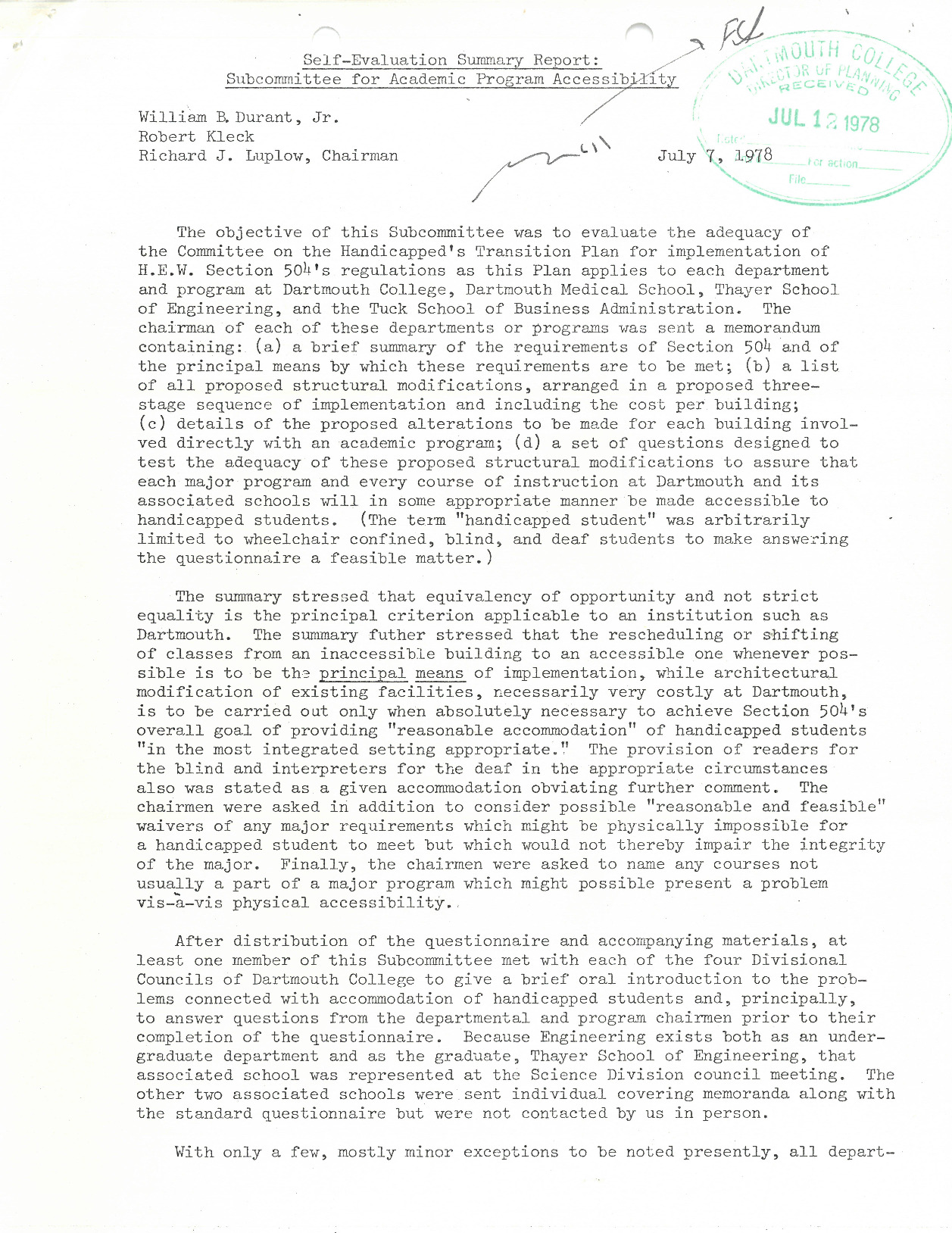
An internal report of all of the self-evaluations commissioned by the Subcommittee for Academic Program Accessibility.
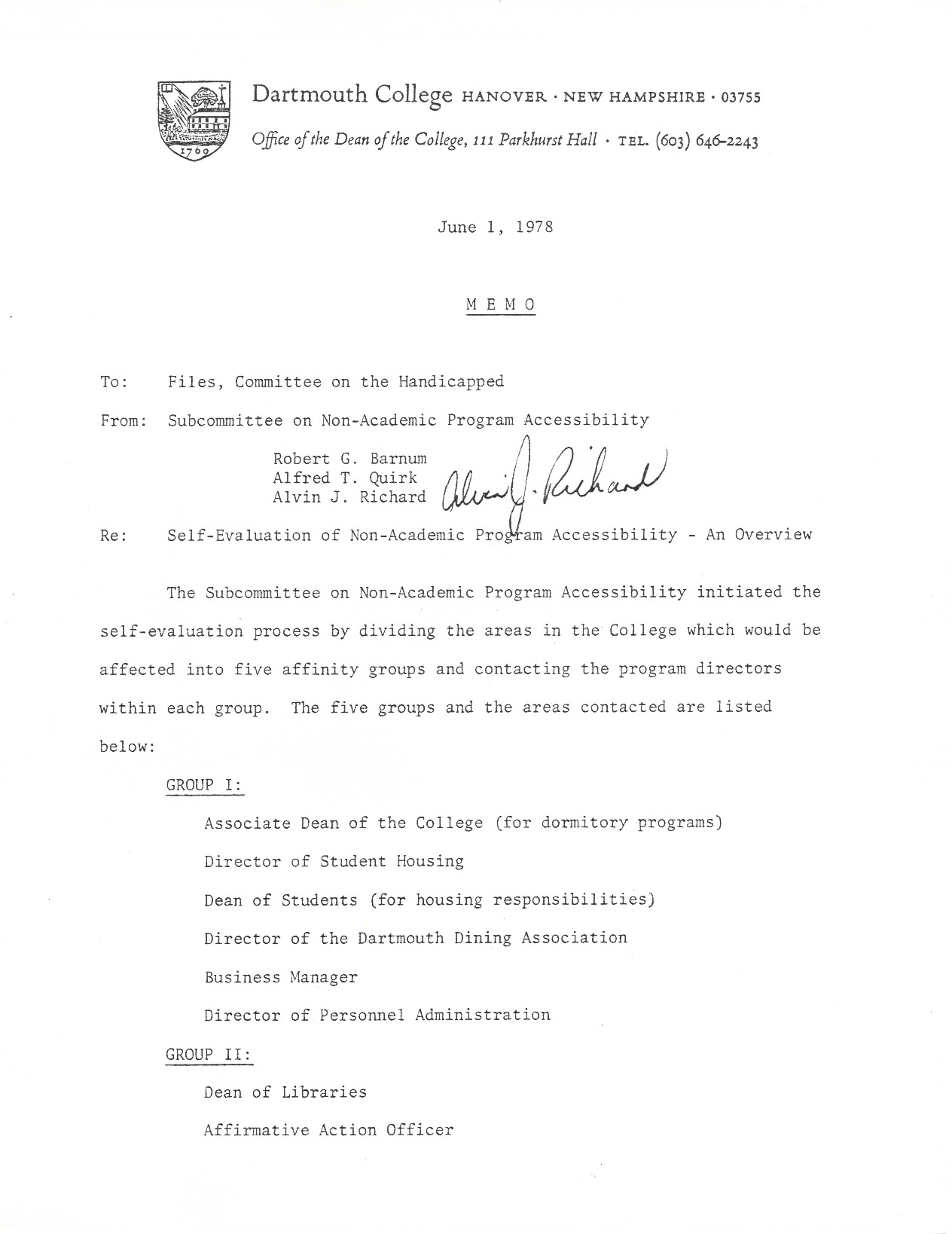
An internal report of all of the self-evaluations commissioned by the Subcommittee on Non-Academic Program Accessibility.
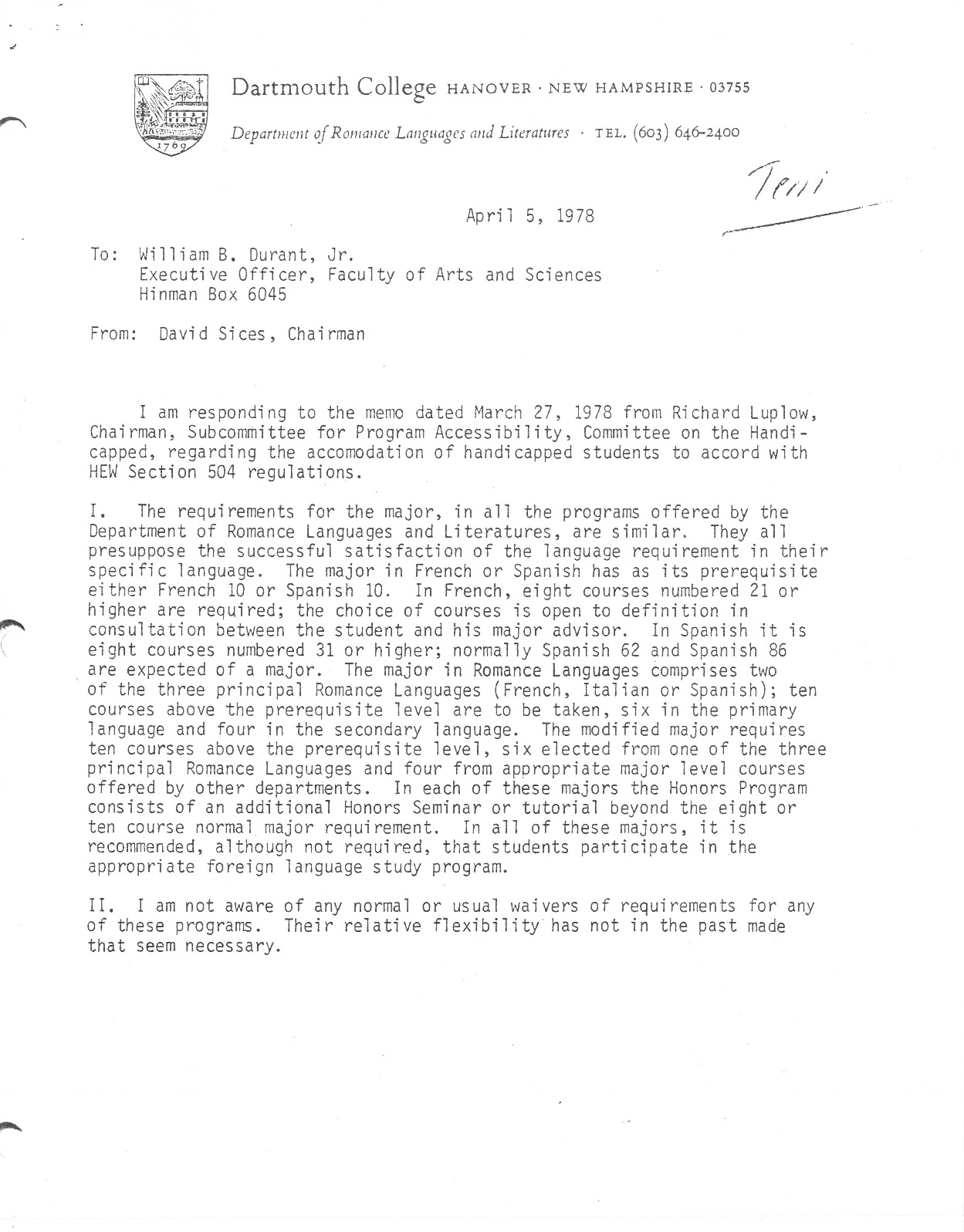
The official self-evaluation for the Department of Romance Languages and Literatures, in which the departmental chair comments on his disappointment that many buildings used by humanities departments are not being prioritized in accessibility renovations.
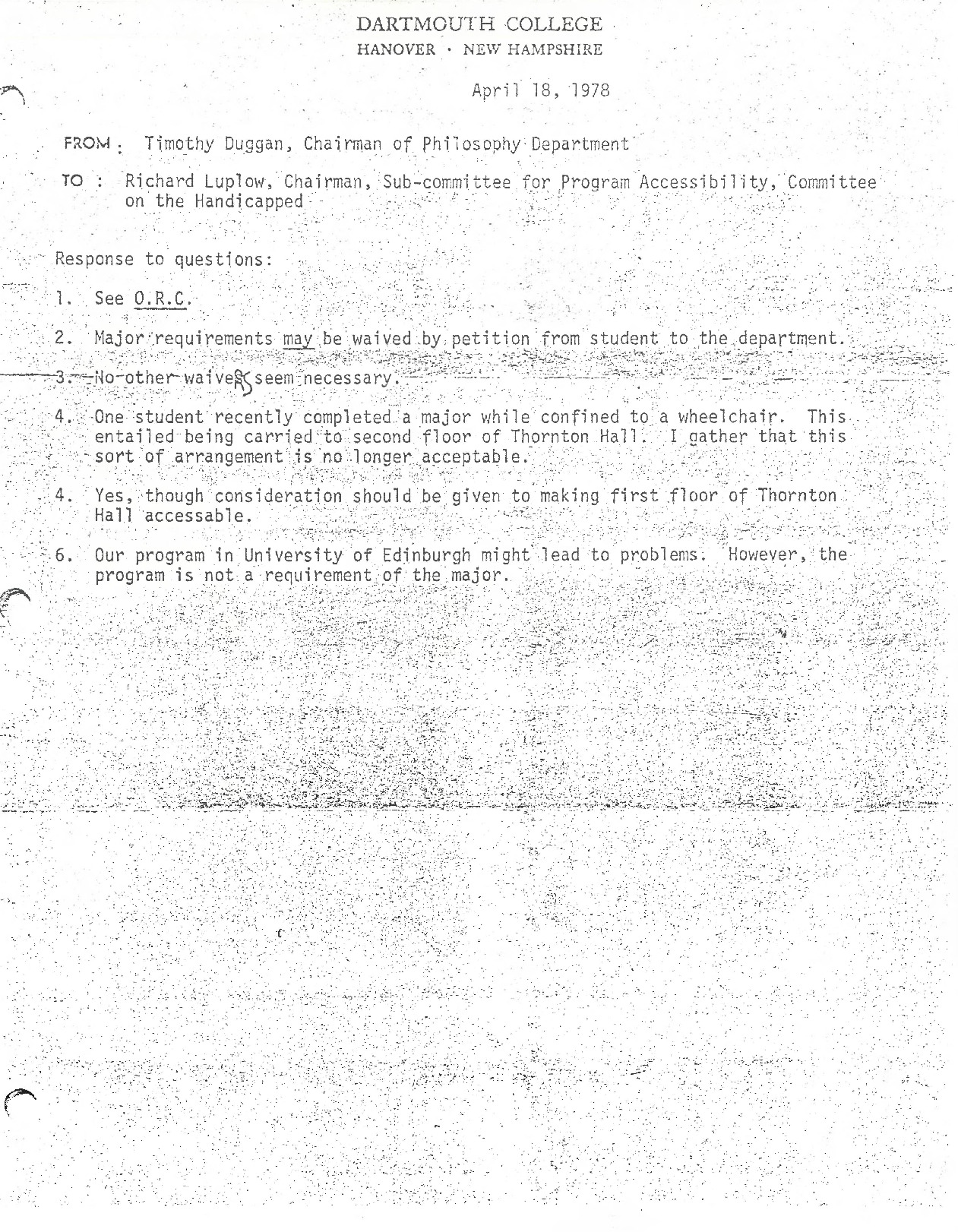
The official self-evaluation of the Department of Philosophy. Despite the taciturn answers of Chair Timothy Duggan, he and his department successfully accommodated a student wheelchair user by having him physically carried to his second floor classes in Thornton Hall.
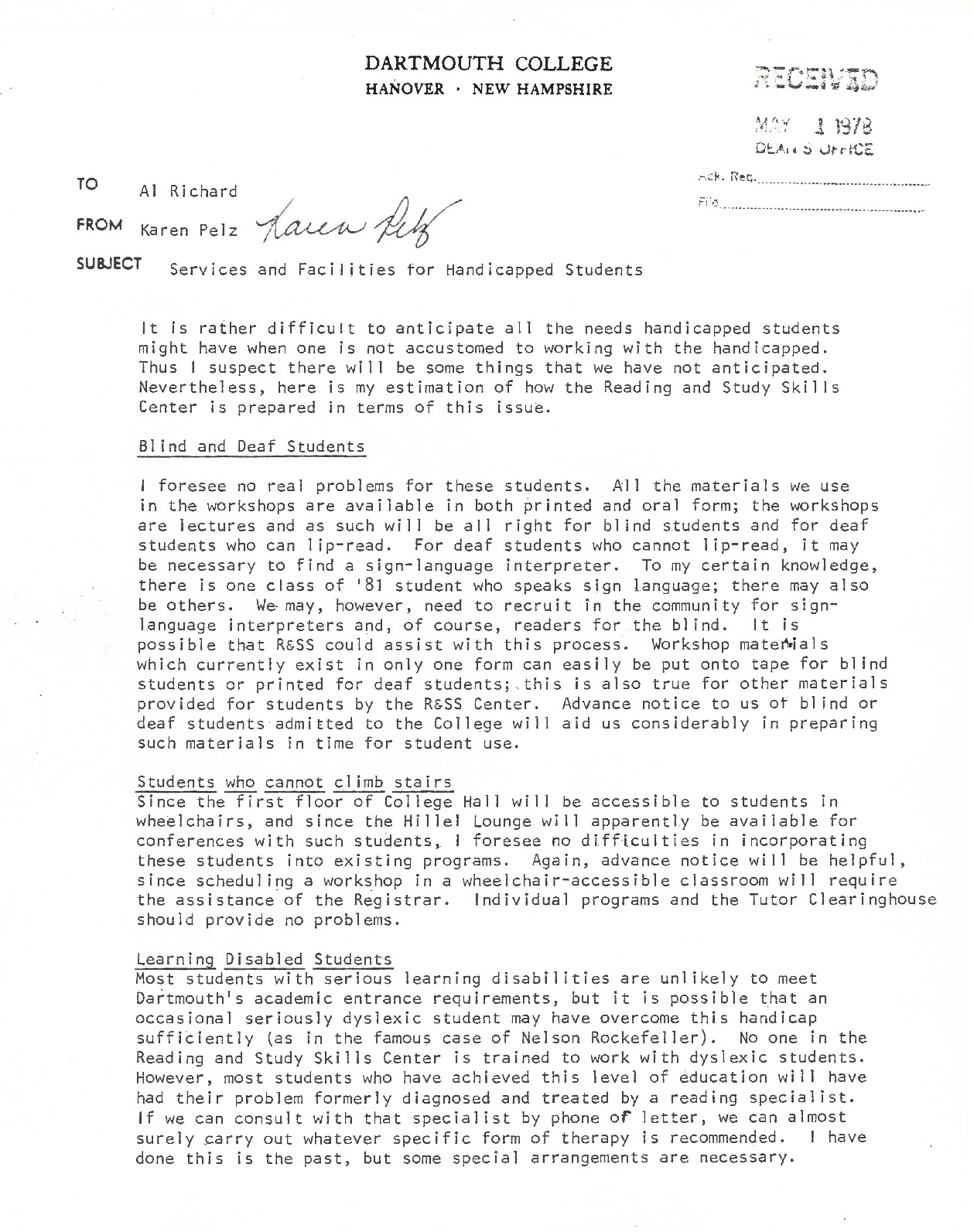
A staff member from the Reading and Study Skills Center (R&SS) describes the services and accomodations the department is prepared to offer disabled students. The self-assessment indicates that R&SS is unaccostomed to working with disabled students, and suggests that students with learning disabilities would not be likely to meet Dartmouth's academic requirements for admission.
 Historical Accountability Student Research Program
Historical Accountability Student Research Program